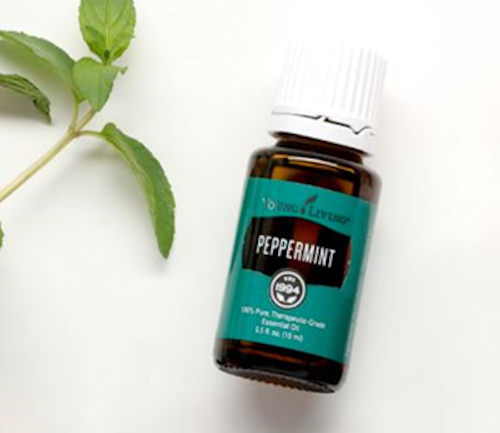F eeling overwhelmed? You might want to bust out a pack of colored pencils, crayons, colored markers, and even paints. Individuals report that they feel better, have more confidence, and are less stressed and anxious when they participate in some type of art. When we create, we are using our senses and engaging in a form of problem-solving. This gives us a sense of accomplishment and lets us express the emotions we can’t put into words. There is much potential in art which includes improved cognitive, sensory, motor skills, and a feeling of calm and well-being.
eeling overwhelmed? You might want to bust out a pack of colored pencils, crayons, colored markers, and even paints. Individuals report that they feel better, have more confidence, and are less stressed and anxious when they participate in some type of art. When we create, we are using our senses and engaging in a form of problem-solving. This gives us a sense of accomplishment and lets us express the emotions we can’t put into words. There is much potential in art which includes improved cognitive, sensory, motor skills, and a feeling of calm and well-being.
Brain
Gardening
 What it is: Just like it sounds, gardening (called horticultural therapy) has benefits in addition to eating the fresh vegetables you have grown.
What it is: Just like it sounds, gardening (called horticultural therapy) has benefits in addition to eating the fresh vegetables you have grown.
How it works: Gardening is shown to reduce depression, uplift mood, and improve memory. Some of this may be related to the effects of being outside in the sunshine, and fresh air, as well as enjoying the benefits of moving and getting exercise. There is also research that shows that being exposed to soil microbes actually has a similar effect on the brain and nervous system as some anti-depressants.
Forest Bathing
 What is it? Japanese name for this practice is Shinrin-Yoku. Distinct from hiking, forest bathing is a practice of simply spending time in nature without any agenda. You can be in a remote area or even a park or urban forest to experience the benefits. Find a spot you love that is easy to access and just go outside. Refrain from text messaging.
What is it? Japanese name for this practice is Shinrin-Yoku. Distinct from hiking, forest bathing is a practice of simply spending time in nature without any agenda. You can be in a remote area or even a park or urban forest to experience the benefits. Find a spot you love that is easy to access and just go outside. Refrain from text messaging.
How it works – Proven stress-relief comes from spending unstructured time in nature. There is a growing body of research that confirms the benefits, which include stress-reduction, improved immune system function, and reduction in anxiety and depression.
My favorite places for forest bathing are Lake Michigan, and in the woods in the fall and winter when there are few people. What is your favorite place to “forest bathe”? I love to either walk mindfully or just sit in one spot. Give it a try…I bet you will feel a sense of peace and a clearer mind.
The Sugar Slump
 Let’s say you start off with something sweet like a bagel with jam and butter, sweetened yogurt, cereal, fruit bar, etc. This high -sugar meal rapidly breaks down to glucose and causes what we call a sugar spike followed by a blood sugar crash due to the pancreas secreting a hormone called insulin. Our body responds to them by telling you “give me more sugar” so what do we do…grab more sugar. The more this happens the more profound the sugar spike in the more insulin is required to clean up the mess. Eventually, our cells become resistant to insulin’s efforts, and the sugar is no longer efficiently burned for energy but stored for fat instead. The fat lands right on our once flat belly. This process is at the root of all inflammatory and chronic health issues.
Let’s say you start off with something sweet like a bagel with jam and butter, sweetened yogurt, cereal, fruit bar, etc. This high -sugar meal rapidly breaks down to glucose and causes what we call a sugar spike followed by a blood sugar crash due to the pancreas secreting a hormone called insulin. Our body responds to them by telling you “give me more sugar” so what do we do…grab more sugar. The more this happens the more profound the sugar spike in the more insulin is required to clean up the mess. Eventually, our cells become resistant to insulin’s efforts, and the sugar is no longer efficiently burned for energy but stored for fat instead. The fat lands right on our once flat belly. This process is at the root of all inflammatory and chronic health issues.
We typically love sugar because it stimulates the brain with secrete serotonin. The “feel good” sensations take over for a short time and cause us to eat more sugar. These cravings create bad habits that are hard to break. Sugar is like an addictive drug. People even have withdrawal symptoms if they don’t wean off it over a longer period.
Our brain needs sugar though it actually uses half of all the glucose in our body to function efficiently. The foods we choose greatly affects brain function. Too much sugar can be a bad thing. Studies have shown the excess sugar consumption to accelerated aging of brain cells affecting memory and cognitive deficiencies. Moderation is key.
Peppermint Essential Oil from Young Living
 I love this oil because it helps me in so many ways. Keep in mind these are ways that Peppermint Essential Oil from Young Living has helped me. I am not saying that it will cure these issues – only how it has helped me with these issues. I am not a doctor. That being said I use Peppermint for the following:
I love this oil because it helps me in so many ways. Keep in mind these are ways that Peppermint Essential Oil from Young Living has helped me. I am not saying that it will cure these issues – only how it has helped me with these issues. I am not a doctor. That being said I use Peppermint for the following:
- To help me focus or wake up
- To clear up my sinuses from a cold or allergies
- To calm my upset stomach
- To help with bowel movements
- To help with heartburn
- To cool off on a hot summer day
I tend to keep a bottle at the office so I can open it and simply let it sit on my desk – open – for 5 minutes. This helps to clear up any sinus issues I may be having. I also like to do this in the afternoon when I hit that afternoon slump. Smelling Peppermint helps to wake me up and focus my thoughts back on my work. I’ll rub a drop or two of Peppermint Essential Oil from Young Living on my stomach when I am not feeling well or I am having digestive issues. I heard recently that someone puts one or two drops in their toilet before sitting down when they need to have a bowel movement.
I have also put one or two drops of Peppermint Essential Oil from Young Living under my tongue to help with heartburn. In the summer it is nice to have a spray bottle with some of the peppermint oil and water combined to help me cool off in the heat. If you try this be sure you do not spray this on your face or in your eyes. Lastly, Peppermint oil is one of the 3 oils I use from Young Living as support for my sinus allergies. I combine the Peppermint with Lavender and Lemon in a capsule with the Young Living V6 carrier oil.
If you are interested in learning more about any of the information in these blogs please feel free to contact me through The Hammock LLC.
Well, that is it for now. We will chat again later.
Melissa
How Essential Oils Work With the Five Senses
 Our sense of smell is the most primitive and most closely associated with our emotions and how our body responds to them. Essential oils activate the limbic region of the brain to release emotions that are stored there, including emotions that have been stored in our DNA from previous generations.
Our sense of smell is the most primitive and most closely associated with our emotions and how our body responds to them. Essential oils activate the limbic region of the brain to release emotions that are stored there, including emotions that have been stored in our DNA from previous generations.
Together with a balanced diet, nutrition, adequate exercise, and water, aromatherapy can help you achieve a healthier, more balanced lifestyle. It can become a part of your daily routine and when paired with other mind-body exercises, it can also help to gently access the deeper, unconscious levels of physical process, including the release of habitual tensions and emotional blocks.
What is Meditation?
 Meditation is an experience that engages your mind and can offer both relaxation and energizing benefits. It develops a mind-body connection that encompasses fitness, health, and wellness.
Meditation is an experience that engages your mind and can offer both relaxation and energizing benefits. It develops a mind-body connection that encompasses fitness, health, and wellness.
Essential Oils are a great way to further deepen that connection and ignite your inner senses.
Meditation exercises, when practiced regularly, can be powerful at calming the nerves and bringing the mind to a restful state.
Research shows that meditation may physically change the brain and the body and can potentially improve health and promote healthy behavior.
Brain Health
 These are 3 simple tips that can have a major effect on your brain health:
These are 3 simple tips that can have a major effect on your brain health:
- Eat Turmeric. Curcumin is an active component of turmeric which is a herb used in curry. Studies have shown that Turmeric helps to reduce inflammation in nerve cells and may lead to a promising treatment for Alzheimer’s disease. It shows that turmeric can support regeneration in neurologic disorders. Try this: Shake curry powder over popcorn, add to soups, stews, and even when cooking eggs.
- Drink Tea. A daily cup of tea provides more than a caffeine boost. Studies show that regular tea consumption can lower the risk of cognitive decline by 50%, and lower the risk for Alzheimer’s disease by 86%. Bioactive compounds found in the tea leaves such as catechins and L-theanine are what give tea its cognitive-boosting benefits. These compounds have anti-inflammatory and antioxidant properties that may help the brain.
- Focus on Gut Health. The gut-brain relationship is critical for healthy living. Your intestines are filled with healthy bacteria which play a role in helping to lower inflammation and limit the activity of free radicals, reactive molecules that can damage cells. Both inflammation and cellular decay are thought to be factors in brain dysfunction. By eating to promote a healthy gut, you can protect your brain from degeneration.
Check with your physician on what is right for you.

